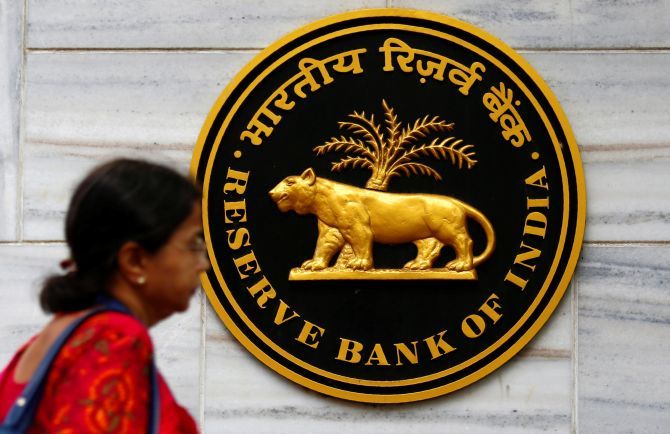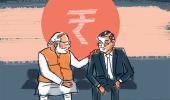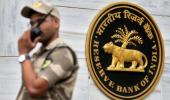'If the RBI board forces the management's hand on all the key issues, it should be prepared for resignations by the governor and the key deputy governor, Viral Acharya,' warns T N Ninan.

The general drift of published commentary since the spat between the government and the Reserve Bank of India became public has been as follows: A showdown should be avoided, and both sides should pull back; the government has a point on the need for more liquidity in the system; drawing on RBI reserves to keep the fiscal situation under control is not a good idea; finally, after having packed the RBI's central board with political fellow-travellers, to now ask such a board to take decisions so far left to the management is best avoided.
The board can provide oversight and guidance, but on technical matters the decision must be that of the professional management.
In broad terms, the commentariat has come down on the side of the RBI while asking it to be more flexible and more open to discussion and persuasion.
There is another view:
The RBI has excess reserves, which it should hand over to the government, to which the reserves belong.
The central bank's management has not been subjected to proper accountability, despite obvious failures, and therefore the RBI's central board needs to play a more active role.
And, it has its finger in too many pies and should focus on its core functions, leaving the rest to other market regulators or the government.
Precedents from other countries have been cited for and against these positions.
The calls for the two sides to pull back and relax is the most sensible advice that can be given, but may not be easy for a couple of reasons.
First, the pressures in the economy are real.
Second, the broader debate on the proper role and functions of the RBI has been going on for some years and has to be resolved because it surfaces every now and then, as now with the payments system.
There is a third factor that in all honesty has to be recognised, namely the personality of the present governor, who is seen as not just rigid but also uncommunicative.
Past governors too have been rigid, but willing to engage.
And yet, especially after the manner in which the last governor left (admittedly, at the end of his term), the government is reluctant to pull the trigger prematurely on this one.
Hence the government's push to get issues discussed threadbare in the board meeting on November 19.
At the same time, if one were to judge by the tone and tenor of recent speeches by two deputy governors, there is a hardening of positions in the RBI's top echelons.
If the board forces the management's hand on all the key issues, it should be prepared for resignations by the governor and the key deputy governor, Viral Acharya.
That can only have negative consequences all around.
Bear in mind that the government is yet to fund a suitable candidate for the post of chief economic advisor.
To look for a new governor and one more top-flight economist to serve as deputy governor, in an atmosphere of conflict, will probably mean planting an officer from the Indian Administrative Service as governor, on the assumption that he will do the government's bidding.
Given the criticism from influential quarters about filling senior economist positions with candidates from abroad, the search for suitable candidates will be an ask, though internal promotion could offer a solution.
The best answer in such situations is some tactical give-and-take.
The board should advise in favour of more liquidity in the system, while appointing a committee to go into the technical issue of whether the RBI has surplus reserves that can be handed over.
The government should use its own resources to give money to the under-capitalised banks that it owns.
And Governor Urjit Patel on his part would be well advised to recall how Manmohan Singh as governor in the early 1980s was opposed to giving a branch licence to a dodgy foreign bank.
When the government insisted and threatened to take bank licensing away from the RBI, Dr Singh (who had submitted his resignation on the issue) chose to back off rather than allow institutional damage to be done.
Dr Patel faces a similar situation today.












 © 2025
© 2025